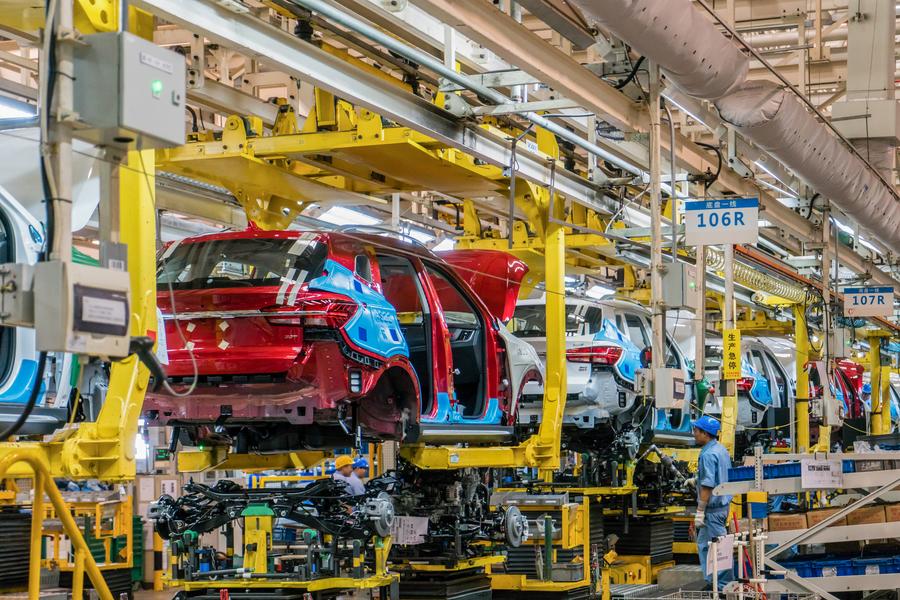发布时间:
来源: 新华社

This undated file photo shows a digital factory for passenger vehicles under Shanghai Automotive Industry Corporation in east China's Shanghai. (Xinhua)
BEIJING, June 24 (Xinhua) -- Through a series of institutional reforms, China will further remove the bottlenecks that strain the development of new quality productive forces, experts said.
The institutional reform in the field of science and technology is essentially forming a new production relation that is in line with the new quality productive forces, with priority given to addressing the obstacles that hinder their development, Liu Dongmei, secretary of the Party Committee of the Chinese Academy of Science and Technology for Development, told China Economic Roundtable, an all-media talk platform hosted by Xinhua News Agency.
First introduced in 2023, new quality productive forces refer to advanced productivity freed from the traditional economic growth mode and productivity development paths. It features high-tech, high efficiency and high quality.
With innovation playing the leading role, "new quality productive forces" has become a catchphrase in China's policymaking initiatives, promising an era marked by breakthrough innovations and comprehensive sustainability.
One crucial aspect of these reforms lies in the coordination among different departments in terms of formulating strategy, allocating resources, and the layout of major facilities to maximize the efficiency of resource utilization, as technological innovation relies heavily on the synergy among multiple factors, including technological and financial ones, Liu said.
Another focus of reform should be the alignment between central and local governments, Liu added, highlighting the pivotal role of local government in pushing technological innovation, as well as the role of central government in guiding the local bodies.
Echoing Liu's analysis, Huang Hanquan, head of the Chinese Academy of Macroeconomic Research affiliated to the National Development and Reform Commission, said institutional reforms ought to be multifaceted and comprehensive, thereby facilitating the smooth flow of high-quality factors of capital, data and talents towards high-quality productive forces.
Noting that China still falls short in terms of original and disruptive innovative achievements, Huang underscored the need to strengthen basic research by reforming the sci-tech system, optimizing the uation regime for research projects, and enabling researchers to wholeheartedly engage in basic research.
Another barrier to innovation lies in a lack of application of technological breakthroughs to industrial chains, said Huang, urging deeper reforms in technology services to expedite the application of technological achievements in factories and transform them into tangible productivity.
In particular, both Huang and Liu highlighted the role of talent management in driving technological innovation.
There is still room for creating a more enabling environment for innovation efforts through enhancing the long-term research uation regime and non-consensus projects review, as well as expanding stable funding for basic research so that the potential and vitality of talents can be stimulated, Liu said.
In a bid to nurture talents with critical and innovative thinking, Huang called for deepening the integration of science and technology, education, and talent development to enable the curriculum and talent cultivation models to better serve talent development. ■
